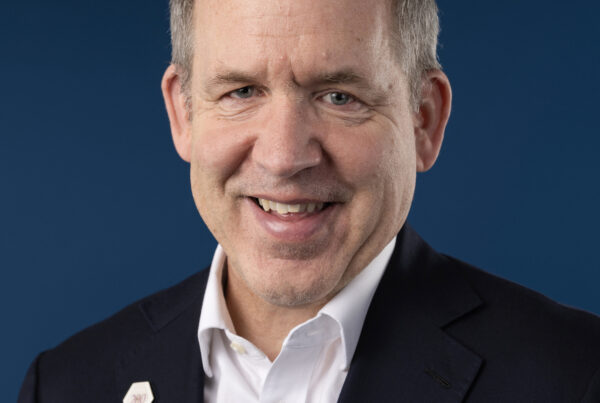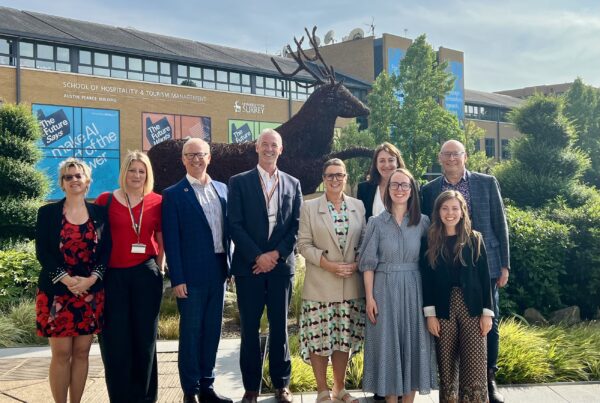We have seen sustained, rapid and substantial growth in rates of participation in global higher education and correspondingly in the size of university providers over the last 20 years.
This has largely been to serve expansion in local domestic markets and parallel developments of international education. The global model of a university has been built over 1000 years and started with a focus on being elite, small scale and research-intensive centres of excellence.
The extraordinary impacts on individuals of the transformational outcomes provided by tertiary education catalysed this growth and it is a long way from reaching global peak in demand.
Higher education has created a knowledge gap and an increasingly obvious unequal playing field in the modern digital economy. We have seen phenomenal global growth in campus developments and capacity and new institutional emergence, that has now coincided with the digital age.
The demand and new supply opportunities became evident to pioneers in MOOCs 10 years ago. In response to the exclusivity and lack of availability of transformational education to the masses, Daphne Koller and Andrew Ng in Stanford and Anant Agarwal and Alan Garber in MIT and Harvard pioneered the setting up of Coursera and EdX respectively.
These reached vast audiences of learners very quickly despite being not easily monetised. Achieving completion rates, anywhere near the extraordinary levels of enrolments, was challenging.
Other global universities joined in on the MOOC revolution at the time without maybe fully understanding why. Much was learnt all round and some individual, institutional and corporate reputations were gained, and in some cases greatly enhanced.
Ten years on from the first MOOCS, we are in a more mature stage now. The originators of those initiatives themselves have learnt much and are applying their learning to new phases of organisational and pedagogical developments in delivering higher education at scale. But what did universities learn and how have they applied that learning to this next mature phase?
Many of the original MOOCS emerged from leading US private research-intensive universities, but the broader movement was quickly followed by large global public research universities. The point at which Purdue merged with Kaplan, to create Purdue University Global, showed how much such distinctions got blurred.
The move to mainstream online education for degree awards, including as stackable micro-credentials, has now become the more dominant part of the landscape, rather than lone non-award short courses, as the maturing model of higher education at scale.
Coursera is now in a position of being a global provider of degree and award courses at scale. It has a vision of “a world where anyone, anywhere has the power to transform their life through learning”.
Its recent Impact Report is titled Serving the World through Learning and Coursera is currently serving 102 million global learners with 200 university partners through 4400 courses delivered in close to 200 countries. Maturing beyond breakaways from discipline pioneers, such companies are now led by combinations of experienced university executives and business leaders, in equal measure.
Their new business models have three routes to learner markets of partnering with universities to serve individual learners, working with employer partners to serve groups of learners, and at a broader scale working with government in serving national needs as currently applied with the government of Barbados.
Betty Vandenbosch as chief content officer of Coursera, shared her vision for higher education in 2030 in a recent HEDx podcast you can access here.
She does not foresee the decline of the campus or death of the current university model. But she does see new and bigger markets emerging for hybrid and digital higher education and learning for private companies, typically in partnership with universities.
Many global universities are now joining in and sharing this vision as partners with Coursera. Others appear to see this as a sideshow and distraction and are more focused on maintaining their traditional models or pursuing their own online ventures alone.
There is great variability in institutional commitment to share the journey and goal of massive global higher education access at scale. A significant barrier to more of them doing so appears to be complexity in governance.
While individual university presidents and vice chancellors may share such a vision or ambition, they are significantly constrained by the need to get faculty, fellow executives, governing boards, alumni, donors, partners and in many cases local and national regulators on board.
The way of overcoming this is complex and requires strong and bold visionary leadership, extraordinary communication and cultural acumen, supportive governance environments, and conducive and strategic external partnerships. Many universities have some of these characteristics in their leadership and strategy eco-system, but few have all of them.
There is potential for a positive future for universities that embrace change and the opportunities for global higher education at scale such as these. But because of the challenging complexity of context, they may need facilitated conversations with technology company partners and purposeful work on leadership, communication and culture.
Their relationships with emerging privatised providers are vulnerable to misunderstandings. In many cases, they need clarity on their needs for new strategies and business models and requirements for building internal and partner trust.
Some of these partnerships, as with Purdue and Kaplan, may happen organically, others may be facilitated by global disruptors such as Coursera, while other routes may be through facilitated brokerage by others.
While the role of the private and public research university will pervade in local markets, less certain futures in global higher education at scale exist for those that pretend that change isn’t happening and hope it will go away.
The threat and risk of that is greatest right now as we emerge from the first phase of a global pandemic, when we imagine learning and pedagogical practice might go back to the past.
The risk of not taking risks just got riskier.
First published in Campus Review on 20th July 2022
Emeritus Professor Martin Betts, Co-Founder of HEDx









